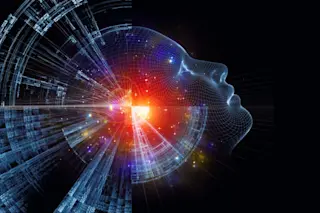Scientists say they've identified a specific pattern of brain activity that may signal consciousness. (Credit: agsandrew/shutterstock) Imagine lying in a hospital bed, conscious, but unable to convey that to the world around you. For sufferers of strokes, traumatic brain injuries or the ever-terrifying locked-in syndrome, it’s not just nightmare fuel — it's reality for some patients. What’s potentially more frightening is that neuroscience hasn’t landed on a way to truly test for consciousness. That's not for a lack of trying. But a new paper published in Science Advances could help pave the way for spotting consciousness in the brain. An international team of researchers examined the brains of 159 people; some were healthy. However, others were either diagnosed with what’s called unresponsive wakefulness syndrome (UWS), where they can open their eyes but can’t move voluntarily, or were in a minimally conscious state (MCS). That's where some behaviors, like tracking movement ...
Researchers Think They've Identified the Brain Pattern that Signals Consciousness
Discover how brain activity signaling consciousness can aid in diagnosing conditions like locked-in syndrome and UWS.
More on Discover
Stay Curious
SubscribeTo The Magazine
Save up to 40% off the cover price when you subscribe to Discover magazine.
Subscribe













